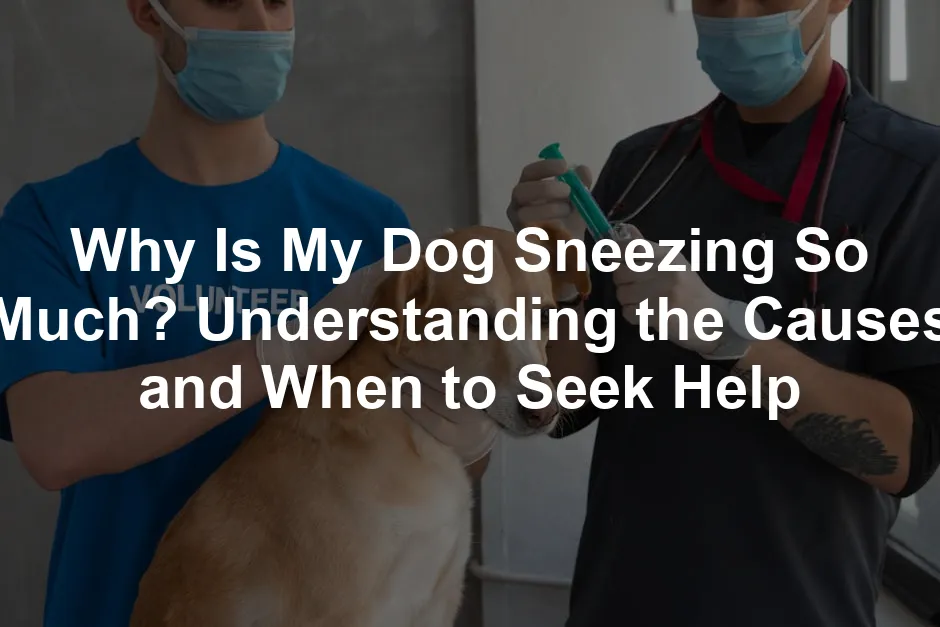
Why Is My Dog Sneezing So Much? Understanding the Causes and When to Seek Help
Introduction
Have you noticed your furry friend sneezing more than usual? Sneezing is a common behavior in dogs. However, excessive sneezing can raise concerns for pet owners. Understanding why your dog is sneezing often is essential. It can be a sign of allergies, irritants, or even underlying health issues. If your dog’s sneezing persists or is accompanied by other symptoms, consulting a veterinarian is crucial.
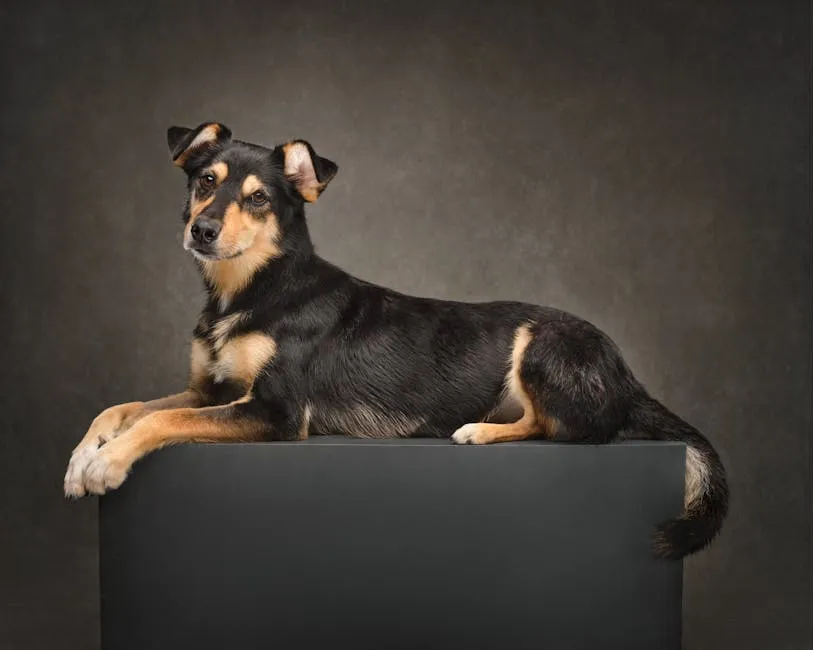
If you’re curious about the reasons behind your dog’s sneezing, understanding common triggers can help. why is my dog sneezing so much
Common Causes of Dog Sneezing
Allergies
Dogs can suffer from environmental or seasonal allergies. Common allergens include pollen, dust, mold, and household products. If your dog sneezes frequently, especially during certain seasons, allergies may be the culprit. You might also notice itchy skin, watery eyes, or excessive scratching. Allergy medications and avoiding allergens can help manage these symptoms.
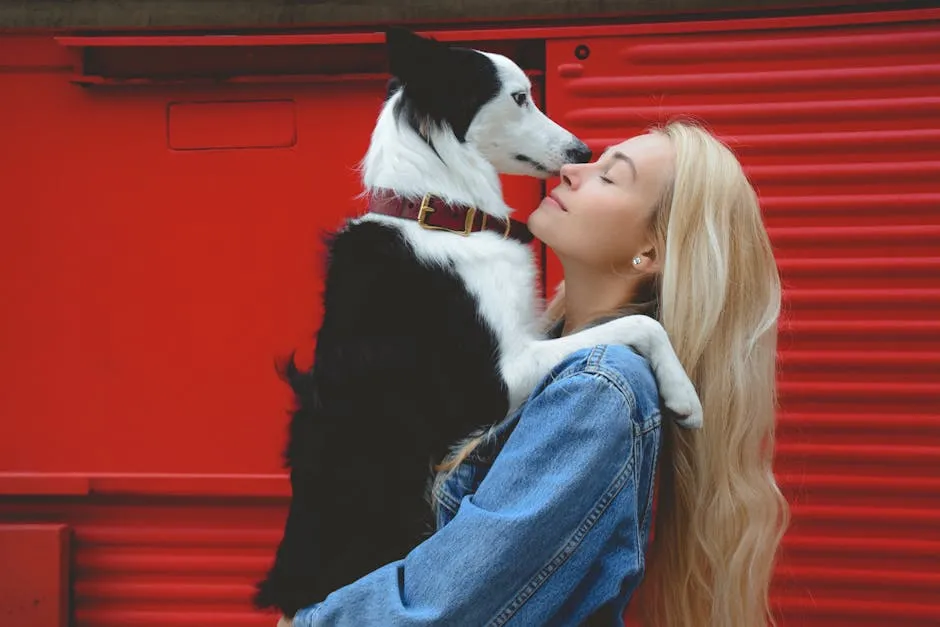
To help your dog combat allergies, consider giving them Dog Allergy Relief Chews. They are formulated to help alleviate allergy symptoms and keep your pup comfortable and happy, especially during those sneeze-inducing seasons!
Foreign Objects in the Nose
Sometimes, foreign objects can irritate a dog’s nasal passages. Grass seeds, small toys, or dirt can get lodged in the nose. If your dog is pawing at their face or sneezing excessively, they might have something stuck. In these cases, avoid trying to remove the object yourself. Instead, take your dog to an emergency vet for proper removal.
Nasal Infections
Bacterial, viral, or fungal infections can also cause sneezing. Symptoms may include nasal discharge, coughing, or unusual behavior. If your dog has a runny nose that lasts more than a few days, it’s time to consult your vet. Treatment may involve medications to clear the infection and reduce inflammation.
Dental Issues
Dental problems can lead to sneezing due to the close proximity of teeth roots to nasal passages. If your dog has bad breath, swollen gums, or refuses to eat, dental issues might be the cause. Regular dental check-ups can prevent these problems and keep your dog healthy.
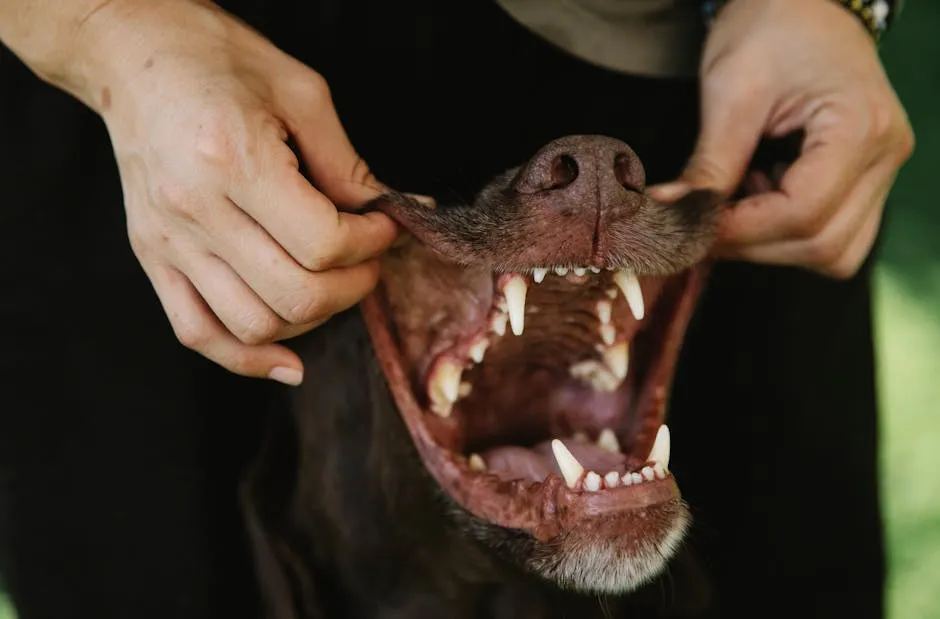
To maintain your dog’s dental health, consider using a Dog Toothbrush and Toothpaste Set. Keeping their teeth clean can reduce the risk of infections that lead to sneezing and other health issues.
Nasal Tumors
Although rare, nasal tumors can cause chronic sneezing in dogs. Symptoms may include nosebleeds, weight loss, and nasal discharge. Early detection is crucial for effective treatment. If you notice persistent sneezing, especially in older dogs, consult your veterinarian for further evaluation.
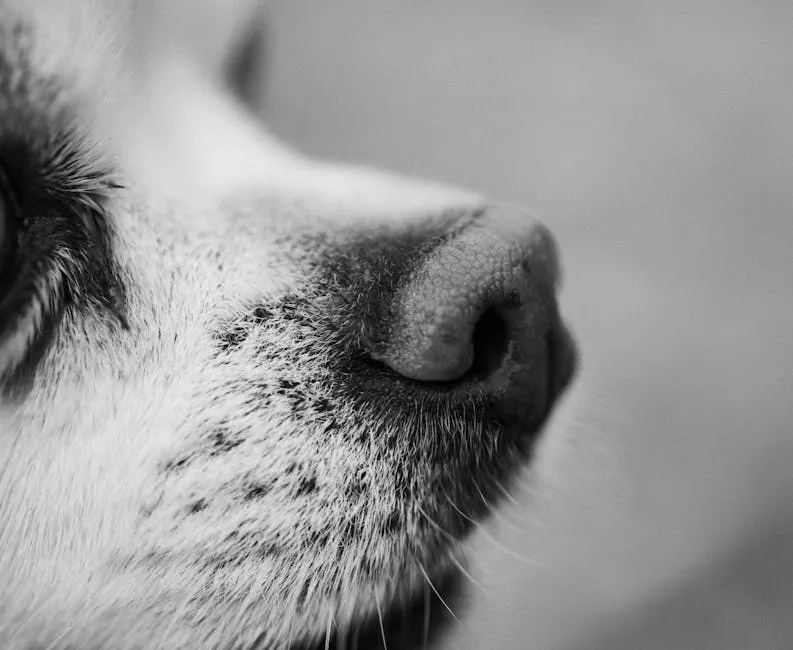
Normal Communication
Dogs often use sneezing as a form of communication. Play sneezing occurs when dogs are excited or happy, signaling that they are having fun. If your dog sneezes while playing, it’s generally not a cause for concern. Observe their behavior to determine if it’s playful sneezing or something more serious.
Reverse Sneezing
Reverse sneezing is a common occurrence in dogs and differs from regular sneezing. It sounds like snorting and can happen due to irritants or excitement. While it’s usually harmless, if your dog experiences frequent reverse sneezing, consider consulting your vet for advice.
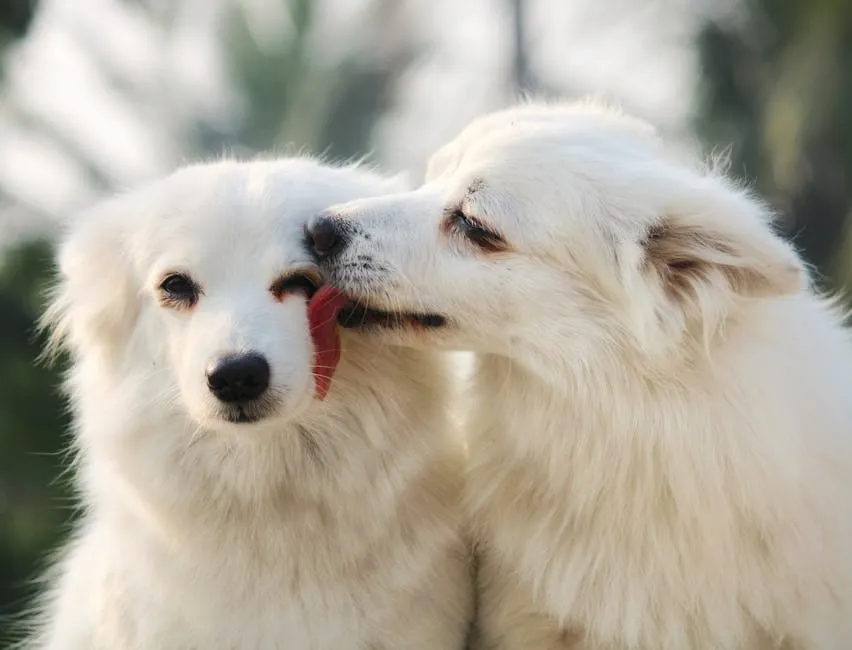
When to Seek Veterinary Care
Keep an eye on your dog’s sneezing patterns. If your dog shows any of the following signs, it’s time to visit the vet: persistent sneezing, nasal discharge, blood in sneezes, lethargy, or coughing. A veterinarian can provide a thorough examination and suggest appropriate treatment based on your dog’s condition.
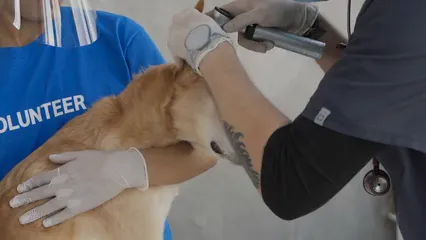
Treatment Options Available and When to Seek Veterinary Care
If your dog is sneezing excessively, it’s essential to consider what might be causing it. Treatment will depend on the underlying issue. For mild cases, such as allergies, your veterinarian may recommend antihistamines or steroids. These can help alleviate the symptoms effectively.
For nasal infections, antibiotics may be necessary. If your dog has a foreign object lodged in their nasal passages, a vet visit is crucial for safe removal. In cases of dental issues, addressing the root problem through dental care is vital. Regular check-ups can prevent these situations from escalating.
When should you seek veterinary care? If your dog sneezes persistently or shows other concerning symptoms, it’s time to act. Look out for nasal discharge, especially if it’s thick or bloody. If your dog seems lethargic or has difficulty breathing, immediate veterinary attention is necessary. Early intervention can make a significant difference in treatment outcomes.

Dental Issues
Dental problems can lead to sneezing in dogs. This occurs because dental infections can affect the nasal passages. The roots of the teeth are close to the nasal area, so an infection there can cause sneezing.
Look for signs of dental issues such as bad breath, facial swelling, or reluctance to eat. If your dog displays these symptoms, it’s time for a vet visit. Regular dental check-ups are crucial for maintaining your dog’s overall health. Keeping their mouth clean can prevent infections that may lead to sneezing. Consider using Dog Dental Chews to help maintain your pup’s dental hygiene.
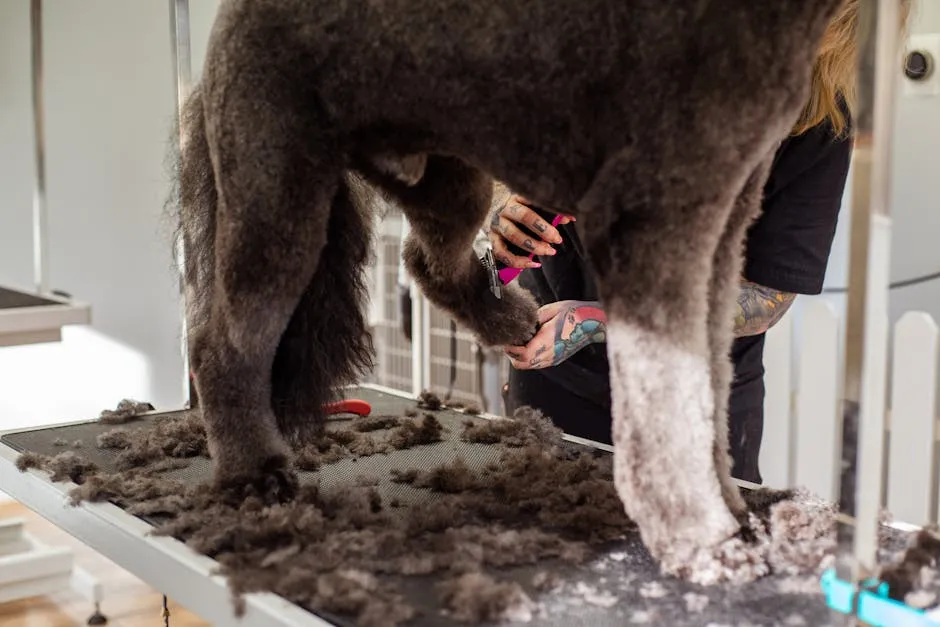
Nasal Tumors
Nasal tumors, though rare, can cause chronic sneezing in dogs. These tumors may obstruct the nasal passages, leading to persistent sneezing. Other symptoms to watch for include nosebleeds, weight loss, and nasal discharge.
Early detection is critical. If you notice your dog sneezing excessively, especially if they are older, consult your veterinarian promptly. They can perform necessary tests to rule out or confirm nasal tumors. Treatment options may include surgery or other therapies, depending on the severity.

Normal Communication
Did you know that dogs often sneeze as a form of communication? Known as “play sneezing,” this behavior typically occurs when dogs are excited or engaging in play. It’s their way of signaling fun and happiness to their playmates.
You can differentiate this from sneezing due to health issues by observing their body language. If your dog is wagging their tail and seems energetic, it’s likely just playful sneezing. However, if sneezing is frequent and your dog appears distressed, it’s essential to investigate further.

Reverse Sneezing
Reverse sneezing is another phenomenon you might observe in your dog. It sounds like a honking noise and is different from regular sneezing. This occurs when a dog rapidly inhales air through the nose, often triggered by irritants or excitement.
While generally harmless, frequent episodes of reverse sneezing can be concerning. If your dog experiences this regularly, consider consulting your vet. Understanding when to seek help can ensure your dog remains healthy and happy.
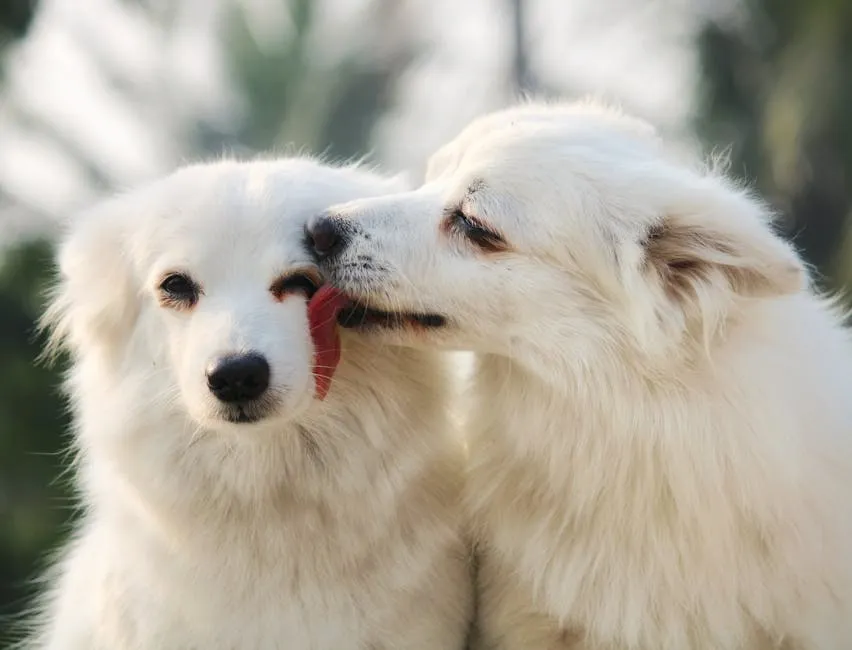
Home Remedies and Prevention
If your dog is sneezing frequently, there are several home remedies you can try. A humidifier can help alleviate nasal irritation. Keeping the air moist reduces dryness that might trigger sneezing.
Reducing allergens in your home is crucial. Regular cleaning can minimize dust, pollen, and dander. Consider using Air Purifier for Allergies to improve indoor air quality. These steps can greatly reduce environmental irritants that cause sneezing.
Regular veterinary check-ups are essential for maintaining your dog’s health. They can help identify potential issues before they escalate. Staying proactive can prevent sneezing and other health concerns. Taking these steps ensures your furry friend stays happy and healthy.
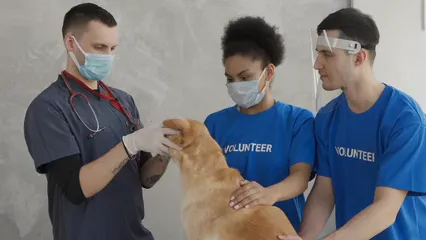
FAQs
Why does my dog sneeze when playing?
Play sneezing is a normal behavior. Dogs often sneeze during play to communicate joy and excitement.
What are common signs that my dog might have allergies?
Watch for symptoms like itching, watery eyes, and constant sneezing. These are clear indicators of potential allergies.
How can I tell if my dog has a foreign object in their nose?
Look for signs such as excessive sneezing, pawing at the nose, or rubbing their face on the ground.
Is reverse sneezing dangerous for dogs?
Reverse sneezing is usually harmless. However, if it happens frequently, consult your vet for advice.
When should I take my dog to the vet for sneezing?
Visit your vet if sneezing is persistent, accompanied by discharge, or if your dog shows other concerning symptoms.
Summary of Symptoms That Indicate a Need for Veterinary Consultation
If your dog is sneezing frequently, monitor their behavior closely. While occasional sneezes can be normal, persistent sneezing can signal an underlying issue. Here are key symptoms that warrant a visit to the vet:
– Nasal Discharge: If your dog has thick or bloody discharge, this is concerning. Clear discharge may not be serious, but colored or bloody discharge usually indicates an infection or obstruction.
– Coughing or Wheezing: These symptoms can suggest a respiratory infection. If your dog is sneezing and coughing, it’s essential to consult your veterinarian.
– Lethargy: If your dog seems unusually tired or inactive, it could be a sign of illness. Pay attention to their energy levels and habits.
– Loss of Appetite: A decrease in food intake can be a red flag. If your dog isn’t eating or drinking, it’s time to seek veterinary advice.
– Difficulty Breathing: If your dog struggles to breathe or breathes rapidly, this is an emergency. Contact your vet immediately.
– Pawing at the Nose: If your dog is constantly scratching or rubbing their nose, they might have something stuck or irritation that needs attention.
Recognizing these symptoms can help you act quickly. When in doubt, it’s best to consult your veterinarian for a thorough evaluation. Taking prompt action can ensure your furry friend stays healthy and happy.
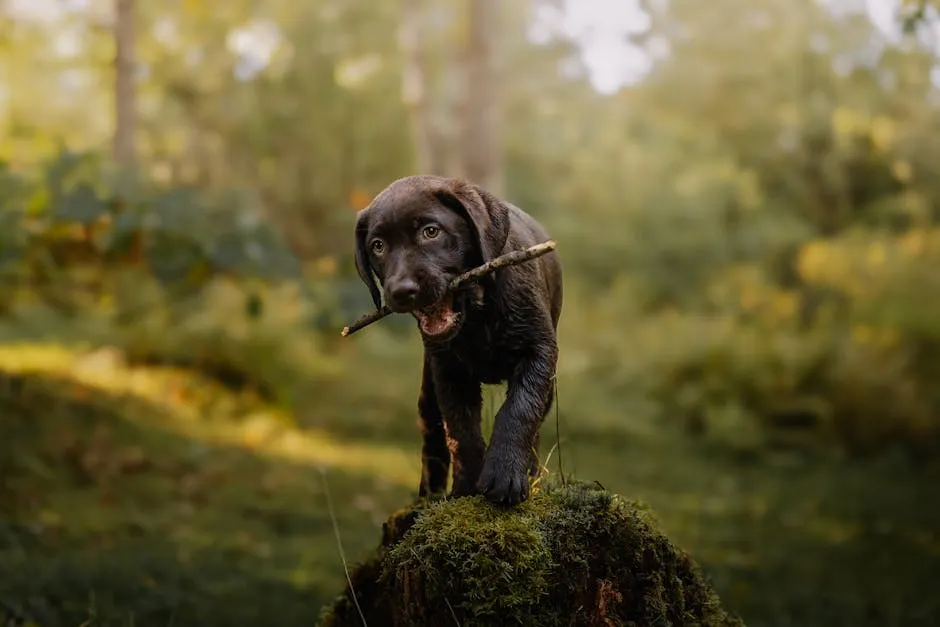
Can Dogs Get Colds Like Humans Do?
Dogs can experience viral infections, but they don’t get colds in the same way humans do. They can contract illnesses like kennel cough or canine influenza. Symptoms may include sneezing, coughing, nasal discharge, and lethargy. It’s essential to be aware of these signs. If your dog shows any combination of these symptoms, consult your vet. They can provide the right diagnosis and treatment.
What Should I Do If My Dog Is Sneezing a Lot?
If your dog is sneezing frequently, start by observing their behavior. Note the frequency and context of the sneezes. Are they accompanied by other symptoms? If your dog seems happy and playful, it might be normal sneezing. However, if you notice any concerning signs, take action.
Consider these steps:
– Monitor Symptoms: Keep track of any additional symptoms like discharge, coughing, or lethargy. This information will be useful for your vet.
– Limit Exposure: If you suspect allergies, try to limit your dog’s exposure to potential allergens. This may include dust, pollen, or certain cleaning products.
– Consult Your Veterinarian: If sneezing persists or worsens, it’s time to visit the vet. They can conduct a thorough examination, identify the issue, and recommend appropriate treatment.
Taking these actions can help ensure your dog’s health. Don’t hesitate to reach out to your veterinarian for guidance. Your furry friend relies on you to keep them safe and healthy, so stay vigilant!

For those adventurous pups, consider investing in a Dog Travel Carrier. It ensures your furry friend can travel in style and comfort, making those trips to the vet or on vacation much easier.
Please let us know what you think about our content by leaving a comment down below!
Thank you for reading till here 🙂
All images from Pexels




